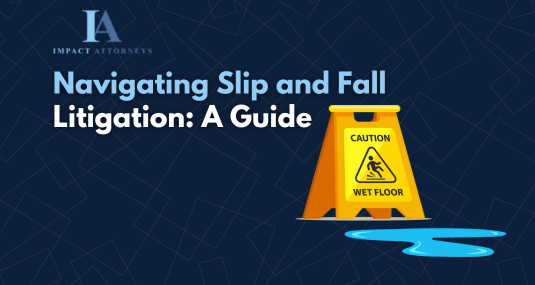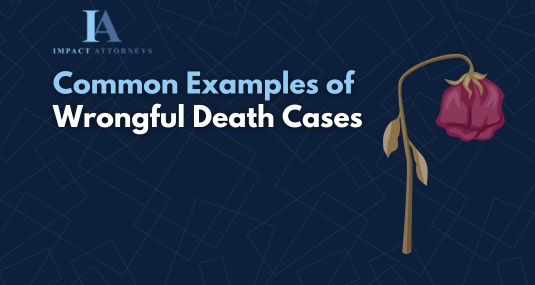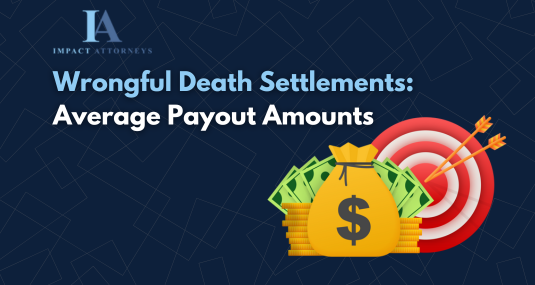Nursing home wrongful death settlements are complex and emotionally charged cases. At Impact Attorneys, we understand the devastating impact these situations have on families seeking justice for their loved ones.
This guide provides essential information on settlement guidelines, helping you navigate the legal process with confidence. We’ll explore key factors that influence settlement values and outline steps to pursue fair compensation.
What Constitutes Wrongful Death in Nursing Homes?
Definition and Legal Basis
Nursing home wrongful death occurs when a resident dies due to negligence, abuse, or substandard care provided by the facility or its staff. These cases involve vulnerable individuals who depend on others for their well-being. The legal basis for filing a wrongful death claim stems from the facility’s duty of care to its residents. When a nursing home fails to meet this standard and a death occurs as a result, surviving family members may have grounds for legal action.
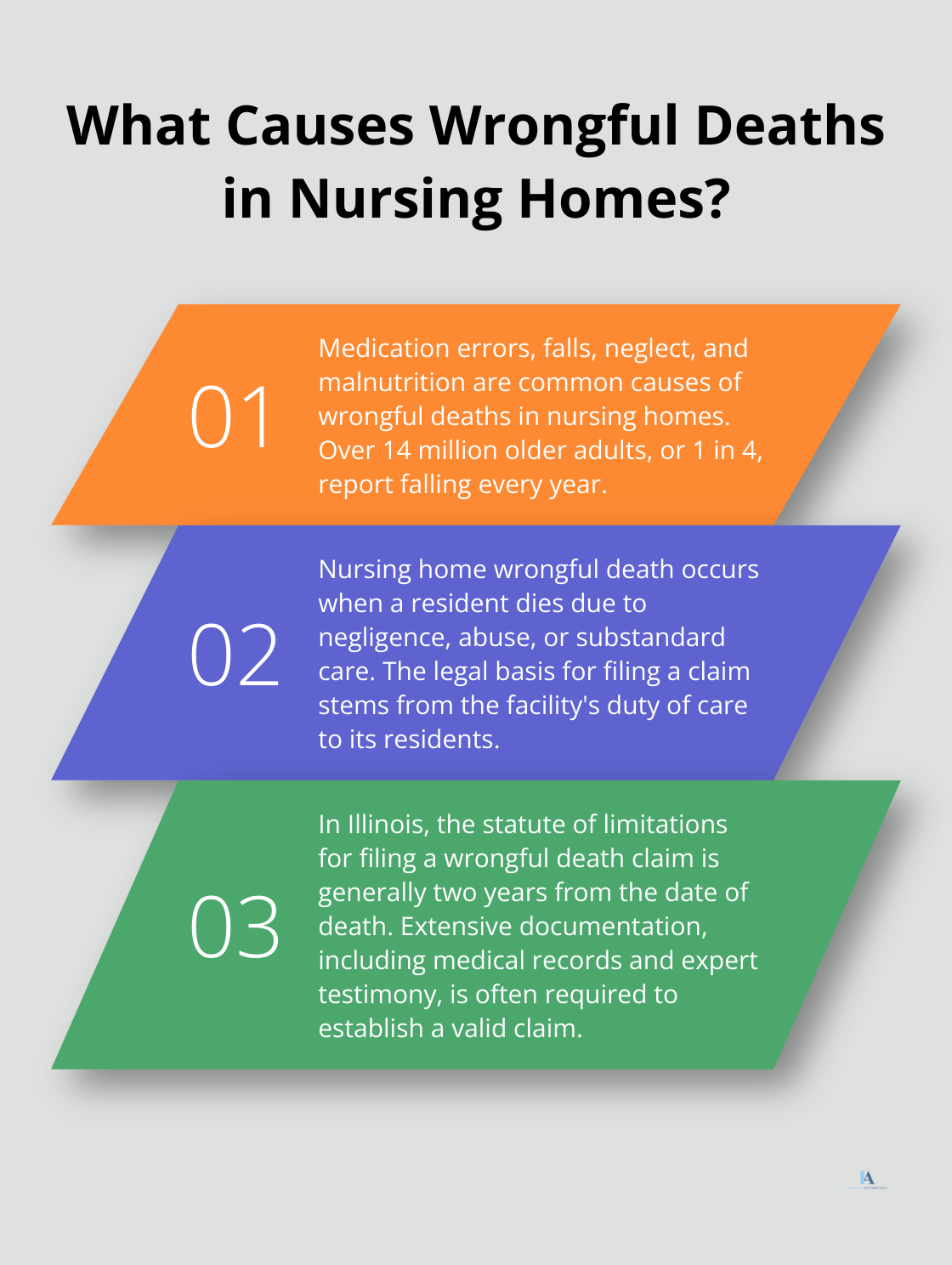
To establish a valid claim, plaintiffs must prove that the nursing home’s negligence directly caused or significantly contributed to the resident’s death. This often requires extensive documentation (including medical records, incident reports, and expert testimony).
Common Causes of Wrongful Death
Several factors can lead to wrongful death in care facilities:
- Medication Errors: Wrong dosage or incorrect medication can cause fatal complications.
- Falls: A major concern, especially when proper safety measures aren’t in place.
- Neglect: Failure to prevent or treat bedsores can lead to life-threatening infections.
- Malnutrition and Dehydration: Often results of understaffing or poor training.
Over 14 million, or 1 in 4 older adults report falling every year. This statistic underscores the critical need for vigilant fall prevention strategies in these facilities.
The Legal Process
The legal process typically begins with a thorough investigation to gather evidence of negligence. This may involve interviewing staff members, reviewing facility policies, and consulting with medical experts.
Time plays a crucial role in these cases. In Illinois, for example, the statute of limitations for filing a wrongful death claim is generally two years from the date of death. However, this can vary depending on specific circumstances, making it essential to consult with an attorney promptly.
Understanding what constitutes wrongful death in nursing homes empowers families to recognize signs of negligence and know their legal rights. This knowledge allows them to take informed action to hold care facilities accountable and potentially prevent future tragedies. As we move forward, we’ll explore the various factors that can significantly impact the settlement values in these cases.
What Impacts Nursing Home Wrongful Death Settlements?
Severity of Negligence or Abuse
The extent of negligence or abuse significantly affects settlement values in nursing home wrongful death cases. Cases that involve gross negligence or intentional harm typically result in higher settlements. While the average nursing home wrongful death settlement varies, cases involving severe misconduct often lead to substantial compensation.
Strength of Evidence
The quality and quantity of evidence can make or break a case. Strong documentation (such as detailed medical records, incident reports, and witness statements) can substantially increase settlement amounts. Cases with clear photographic or video evidence of neglect or abuse often lead to quicker and more substantial settlements.
Victim’s Profile
The age and health condition of the victim prior to death influence settlement values. While every life holds equal value, juries and insurance companies consider factors such as life expectancy and quality of life in their calculations. The wrongful death of a relatively healthy 65-year-old might result in a higher settlement than that of a 95-year-old with multiple pre-existing conditions.
Emotional Impact on Family
The emotional toll on surviving family members plays a significant role in wrongful death settlements. Courts consider the loss of companionship, guidance, and support. Families who effectively communicate their emotional distress and the impact of their loss often see higher settlement offers.
Prevalence of Elder Abuse
Elder abuse in nursing homes is a serious concern. A survey of 577 nurses and nursing aides in long-term care facilities found that 81% of the staff had witnessed emotional elder abuse. This statistic underscores the prevalence of the issue and the potential for substantial settlements in cases of wrongful death.
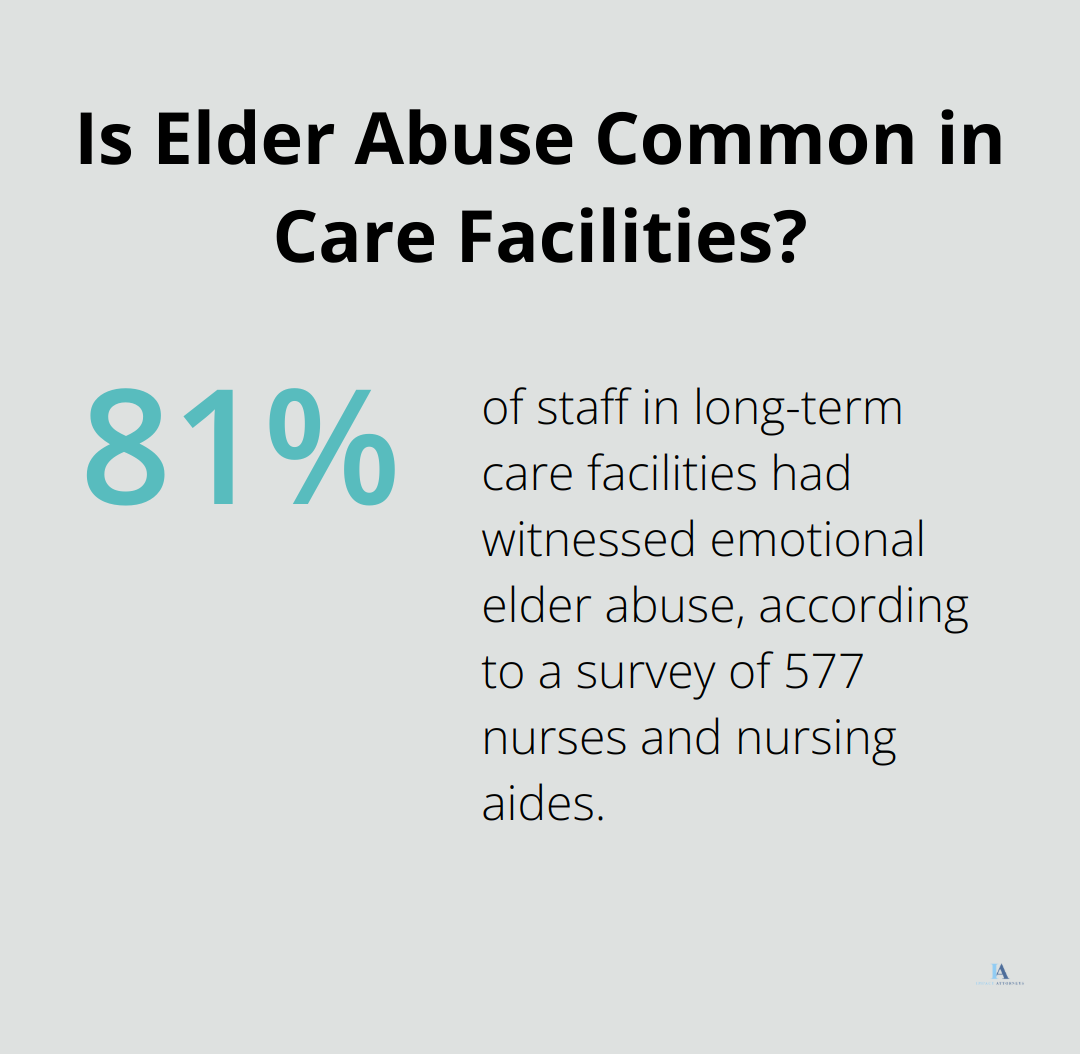
These factors can significantly influence settlement amounts, but each case remains unique. Experienced legal representation proves essential in navigating these complex cases and ensuring fair compensation. Attorneys meticulously evaluate all aspects of a case to build the strongest possible claim for their clients.
As we move forward, we’ll explore the step-by-step process of pursuing a nursing home wrongful death settlement, from initial investigation to potential trial preparation.
How to Navigate the Settlement Process
Initial Investigation and Evidence Gathering
The first step in pursuing a nursing home wrongful death settlement involves a thorough investigation. This process includes the collection of medical records, incident reports, and witness statements. Medical experts often review documents to establish a clear link between negligence and the resident’s death.
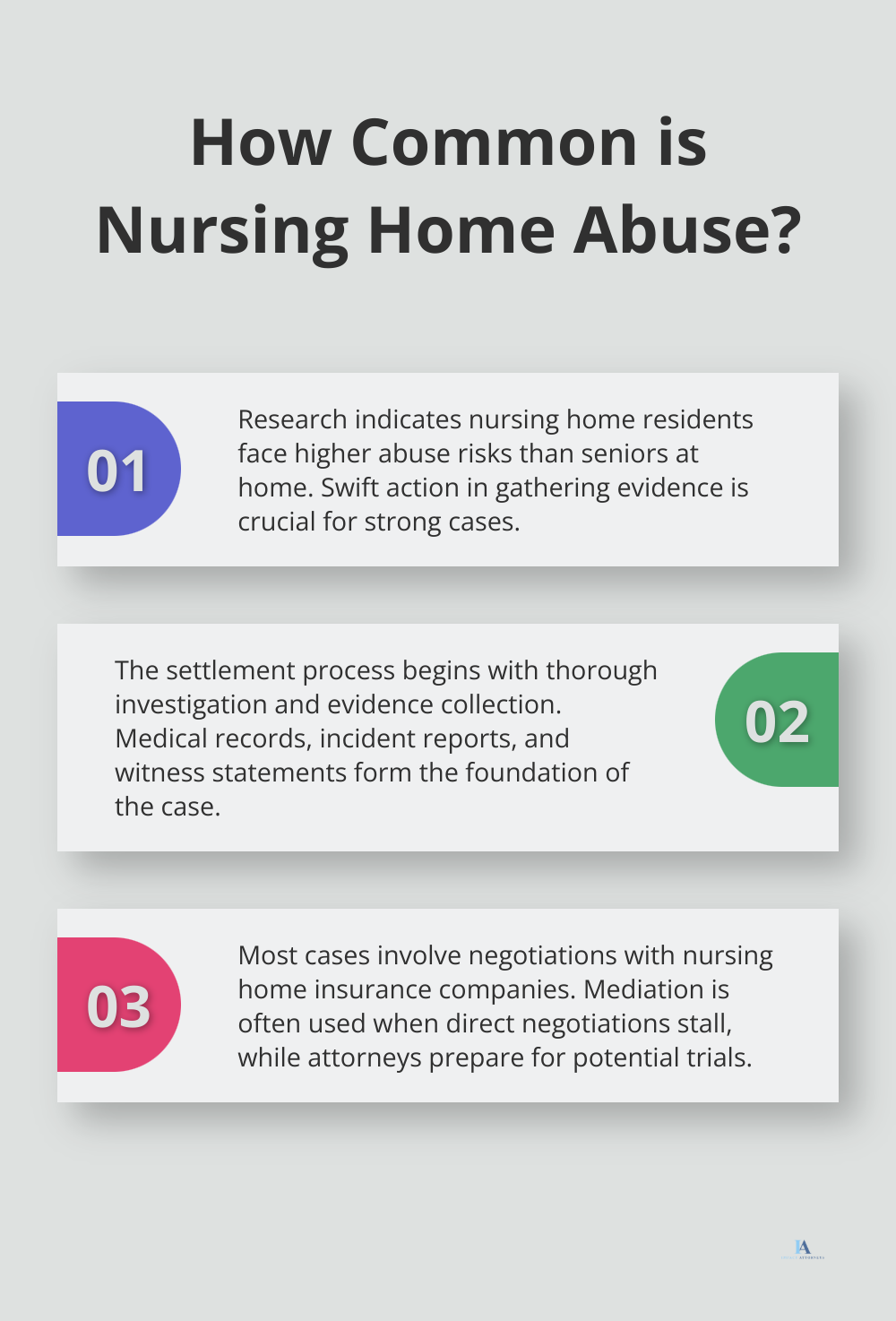
Photographic evidence can significantly strengthen a case. Families should document any visible signs of neglect or abuse (such as bedsores, unexplained bruises, or unsanitary living conditions).
Time plays a critical role in these cases. Swift action helps preserve vital evidence and witness memories.
Filing the Lawsuit and Discovery
After building a strong case, the next step is to file a lawsuit against the nursing home. This formal legal action notifies the facility and initiates legal proceedings.
The discovery phase follows the lawsuit filing. Both parties exchange information and evidence. This often includes depositions, where nursing home staff and management answer questions under oath. Their responses can reveal important details about care practices and potential negligence.
Negotiation with Insurance Companies
Most nursing homes carry liability insurance. Negotiations with their insurance representatives aim to secure fair compensation for clients.
These negotiations often prove intense. Insurance companies typically start with low offers. Experienced attorneys counter effectively, using evidence and legal precedents to support their position.
Research suggests that individuals in nursing home settings are at much higher risk for abuse and neglect than older persons who live at home. Such findings underscore the severity of the issue and support the push for appropriate settlements.
Mediation and Trial Preparation
If direct negotiations stall, mediation offers a structured environment for resolution. A neutral third party facilitates discussions between all parties.
Throughout this process, attorneys prepare for the possibility of trial. This preparation involves:
- Preparing witnesses, including family members and expert witnesses
- Organizing evidence for presentation to a jury
- Developing compelling arguments that clearly demonstrate the nursing home’s liability
While most cases settle before trial, readiness to go to court often motivates opposing parties to offer fair settlements.
The settlement process requires persistence and legal expertise. Families navigating this difficult journey benefit from experienced representation to secure justice for their loved ones and hold negligent facilities accountable.
Final Thoughts
Nursing home wrongful death settlements provide justice and drive industry-wide improvements. These cases offer financial compensation for grieving families and create a safer environment for all nursing home residents. The emotional healing from holding negligent parties accountable can significantly impact families seeking closure.
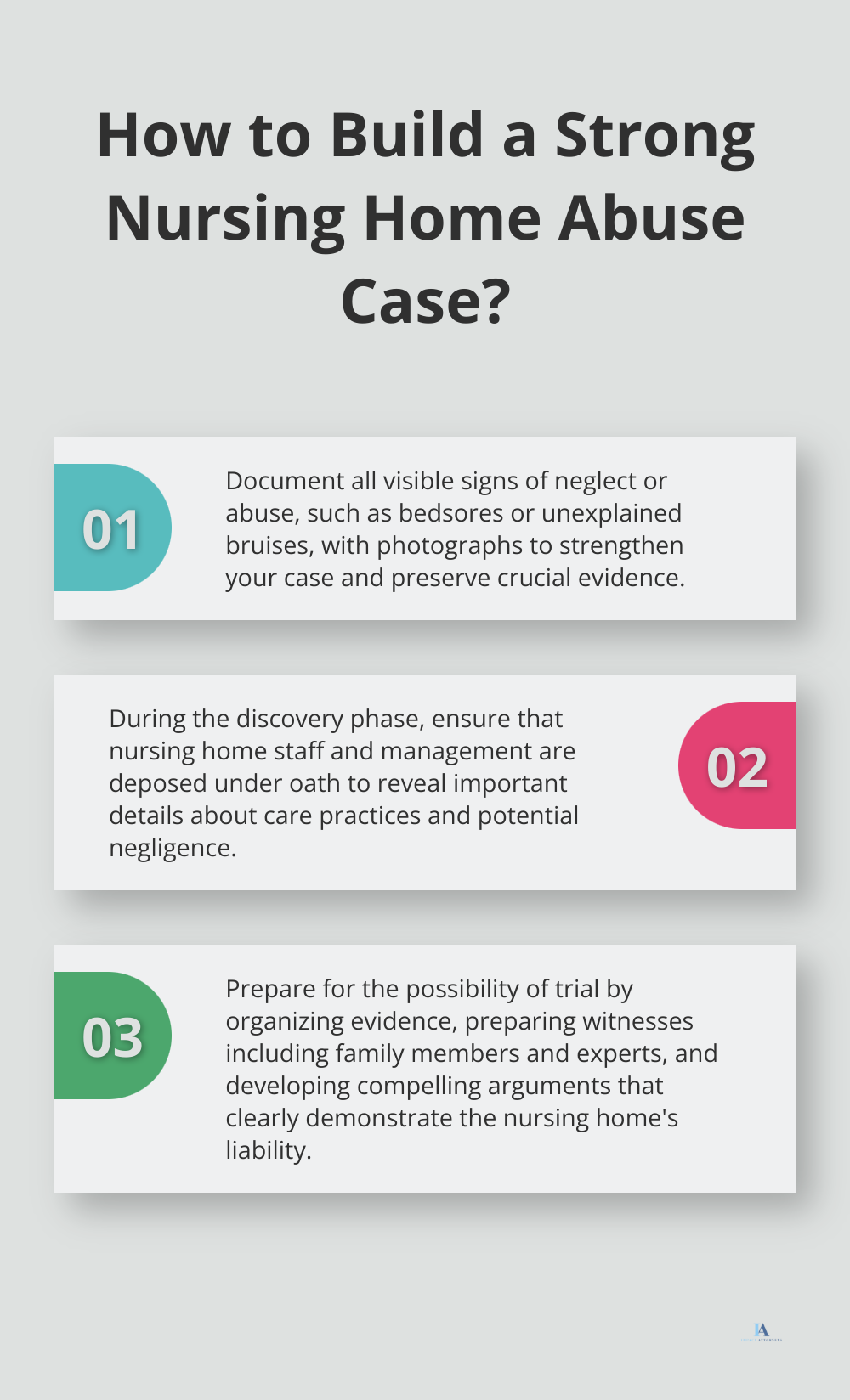
The journey through a wrongful death claim involves complex legal processes and emotional challenges. Impact Attorneys specializes in navigating these difficult cases, offering support and representation to secure the best possible outcomes. Our experience shows that successful settlements often lead to policy changes and increased staff training in nursing homes.
Time plays a critical role in these cases, as prompt action helps preserve evidence and meet legal deadlines. If you suspect your loved one’s death in a nursing home resulted from negligence or abuse, seek professional legal advice immediately. We commit to guide you through every step of the process, fighting for the justice and compensation your family deserves.

